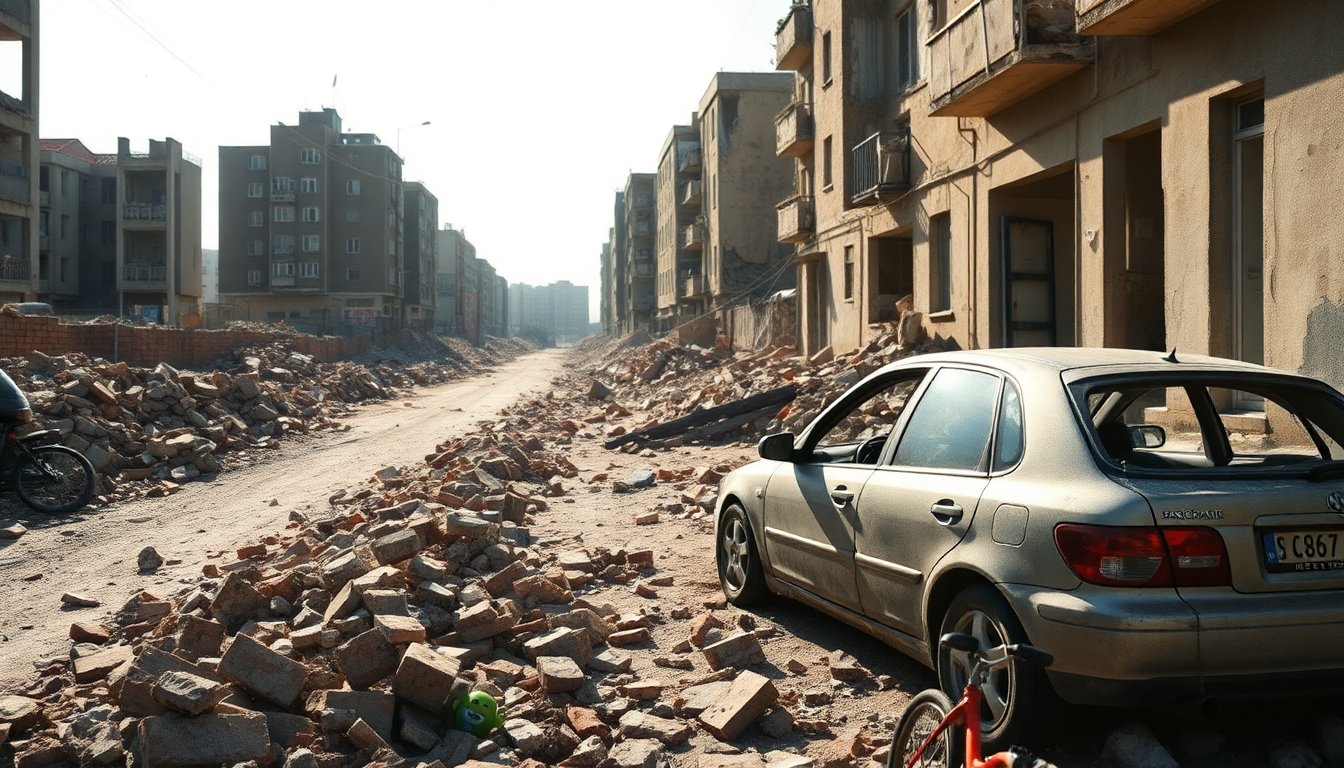Table of Contents
In the early hours of Wednesday, a wave of missile and drone strikes by Russian forces targeted the city of Ternopil in western Ukraine. This attack resulted in the deaths of ten individuals and injuries to at least forty others. It marks another grim chapter in the ongoing conflict that has plagued Ukraine for nearly four years, raising concerns over the safety of civilian populations amidst military operations.
The aerial bombardment caused catastrophic damage in residential areas, particularly to a multi-storey apartment block. The upper floors were severely damaged, creating a chaotic scene as black smoke filled the sky, illuminated by the flames consuming parts of the building. Eyewitness accounts described emergency services rushing to the scene, searching for survivors and tending to the wounded.
Details of the attack
Ukrainian officials reported that the assault involved over 470 drones and 48 missiles, a significant escalation in military operations targeting civilian infrastructure. The strikes aimed at energy and transport facilities, resulting in widespread power outages amidst frigid winter temperatures across various regions of Ukraine.
Impact on civilian life
Among the casualties, Interior Minister Ihor Klymenko revealed that twelve children were included in the count of thirty-seven injured in Ternopil. This underscores the severe impact of the conflict on vulnerable populations. President Volodymyr Zelensky confirmed the extent of the destruction, noting the potential for additional victims trapped beneath the rubble of the devastated building.
In light of this tragedy, President Zelensky called on international allies to enhance efforts to pressure the Russian government to cease its aggressions. He emphasized that each brazen attack on civilian life highlighted the inadequacy of current measures against Russia. He advocated for increased sanctions and the provision of advanced air defense systems to Ukraine, stating, “Effective sanctions and assistance to Ukraine can change this situation.”
Broader context of the conflict
The recent missile strikes are part of a broader strategy by Russia to undermine Ukraine’s energy infrastructure. Energy officials reported that attacks were carried out in seven regions, leading to emergency protocols and restrictions on power usage across the nation. A witness in Lviv, another city affected by the strikes, reported hearing multiple explosions, illustrating the widespread nature of the attacks.
International reactions and precautions
In response to the escalating threat, neighboring Poland, a NATO ally, took precautionary measures by temporarily closing the airports in Rzeszow and Lublin. Polish authorities scrambled military aircraft to safeguard their airspace, reflecting heightened tensions in the region. The ongoing conflict continues to pose significant risks not only to Ukraine but also to surrounding nations as they navigate the precarious security landscape.
As the situation develops, the international community is closely monitoring the situation, with many leaders expressing solidarity with Ukraine and condemning the attacks on civilian infrastructure. The humanitarian implications of these military actions remain dire, with numerous civilians caught in the crossfire, raising urgent calls for a peaceful resolution to the conflict.
The extent of the damage from the latest strikes remains to be fully assessed, but the impact on everyday life in Ukraine is already profound. As winter deepens, the struggle for survival amidst ongoing military aggression presents a critical challenge for the nation and its people, who continue to show resilience in the face of adversity.


